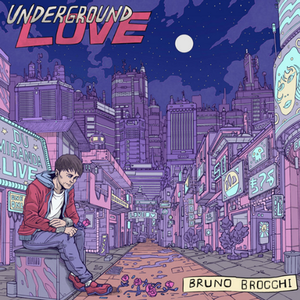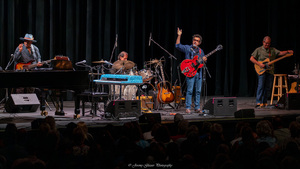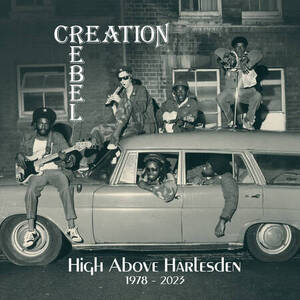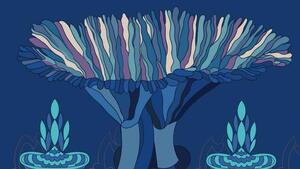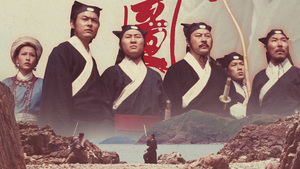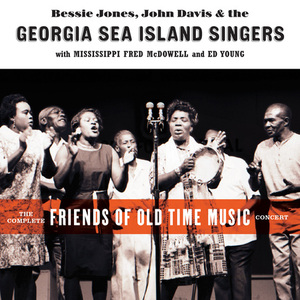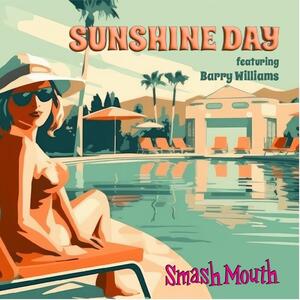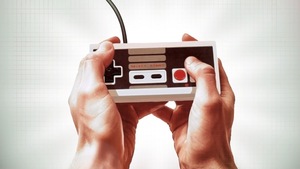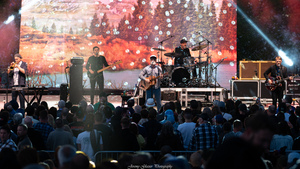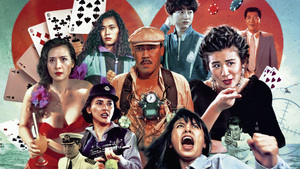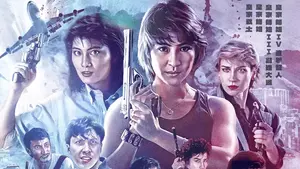
Peter Himmelman
Linda Tate
Peter Himmelman’s longevity in the music business is proven by his multi-faceted talent and having irons in many fires. His success began with the band Sussman Lawrence in his home state of Minnesota, grew into his solo material, his Grammy winning children’s album, and his musical contributions to some of the most notable shows on the tube such as Bones, Men In Trees, and Judging Amy. It seems his creative spring flows swiftly. Peter’s wife and four kids are his balance and his deep rooted faith is his ground. He hasn’t played the rock star card often and invariably knows when is when. He’s always been one to play by his own rules and never forsake that for commercial success. His latest release The Pigeons Couldn’t Sleep shows his versatility and his range. The songs vary from a reggae flavor to stylistic ballads and upbeat rock numbers. It’s a fluid movement from beginning to end. Ink 19 is pleased to speak with Peter about this project, his past, and his future.
• •
…so I was playing with this piano player who happened to have just come back from Nigeria, and he was really immersed in this reggae scene over there, and nothing he was playing was working. He thought he could maybe play a “honky-tonk” kind of thing. I said, “Start playing some reggae, play a bubble over this.” He says, “No, it won’t work.” “Just try it.” And it really did work, so, you know, these things are very spontaneous.
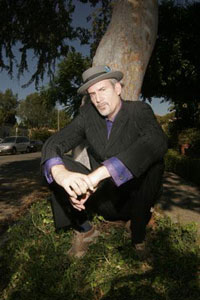
Are all of your fans taking to the new material, is it getting a really good response?
You know, it’s hard to know what these fans are thinking. I think they like it, I’m not sure. People have written me that they really like it, it’s hard to know. And I think the fans are such a diverse group, maybe as diverse as the types of music… I mean, part of my music is kind of sensitive, singer/songwriter, acoustic guitar, maudlin-type man, and the other is pretty scream and rock, so I don’t know if some fans don’t like the rock and like the quiet. I don’t know how it works for people. In general, I’m a pretty self-serving musician. I never write that much with the intention of appeasing any particular group, I just try to come up with things that I think are very interesting or fun, and hopefully somebody will be listening to it.
I think lots of people are listening, I think you’re doing a good job at it. On the DVD itself, the thing that I loved the most was it was such a great look. It was kind of raw footage, but not so raw that it looked like it was amateur.
Right.
I loved that feel to it. When you combined the old and the new footage during the performances I thought it worked, it was brilliant. The old Sussman Lawrence footage, it was like a treasure chest of history.
Yeah, that stuff had been missing for twenty years and it finally surfaced in somebody’s garage, so it was amazing. There was far less of it than I thought there would be. And unfortunately, even the stuff that was there was hard to integrate with the rest of the film.
It still worked.
It worked pretty well. I mean, I like the film, not as a biographical piece, but more about this guy, Peter Himmelman, more for everybody, in the sense that I serve as a metaphor for the efficacy, or lack thereof, of carrying your dream on into middle age. I’ve talked to a lot of different people, lawyers and doctors who have at one time been musicians, and really bemoan the fact that they put their guitar down at one time. Or I mentioned that guy in the film who graduated from MIT.
The cup holders.
Yeah, he had great designs about designing spaceships and he probably could’ve, and I don’t know what came his way and intervened, and now he’s designing cup holders for Ford, which is a cool job, he’s doing design work and you know, cup holders sell a lot of cars, and [I just] think about his dream of designing cup holders…
Why did you do Rock God with this particular CD? Was it just time to share the story?
Yes, I’d like to tell you that my staff and I convened and we came up with this idea. It just so happened that I was making the film, and I had this record, and we looked at getting on the indie tour, the festival circuit and everything, or trying to make a deal with one of these TV shows that license a thing, they would give you like, ten thousand – it wasn’t worth it. And I thought, why don’t I? I have my own means of distributing this thing, getting it into people’s hands, that seems to be far better with a far broader reach than these traditional channels. And give it away for free. It came to me one day, I think, in the shower. I might have been soaping my knee or something, I’m not sure, some body part.
So, please, just tell me that after all that tour footage in Rock God, that it wasn’t your last tour, I mean, with or without the flying baby, I would hate to think that we’ve seen the last of you.
No, no, no, it wasn’t the last, but it was… Interestingly, it precipitated not having performed for an entire year, which is something I’ve never done. And it was a bad year in a lot of ways, and I went out on a tour this summer again, and things were different, I kind of liked it better.
I loved the show on the DVD where you took everyone outside and you kind of coaxed…
Yeah, that’s something I do from time to time if I don’t feel like I’ve crossed a certain threshold of, I don’t know, energy, or connection with people.
But when you had the one lady outside and you coaxed her into singing in “Permanent Things,” and she was just obviously very in touch with it at the moment, I mean, having such an intimate moment like that with someone in the audience must be a really fantastic feeling.
Yeah, you can see that in the film my mood started to pick up, which is pretty much what happened. After that was very much a pivotal point. You know, the movie, it was like a slice of life, two months in the summer of Peter Himmelman, purveyor of dream. And it wasn’t going too well at first, and after that, it was very ignobling. I may mention something to you right now that is not necessarily germane to the interview, I keep thinking about it. I’m very similar to that whole experience. You know know Daniel Pearl, the writer…
Yeah.
So anyway, I’m like, I study the guy, I’ve read Bernard Henri Levy’s book twice, I mean, I’m just combing, I’m reading all about it, it’s a passion of mine. I think he has a place, really, in the center of the universe, and with this crap going on in Pakistan, I think it’s gonna even be bigger. So I wish I could’ve known him, and I think about him, and you know, that’s the extent of it. But yesterday, somebody sent me a piece from the Wall Street Journal, and this writer’s writing about his relationship with Daniel Pearl, and how Daniel Pearl was right about Musharraf. Anyway, in it he goes, “we bonded over music, mostly this one guy, Peter Himmelman, and we’d been to a bunch of his shows, and we just thought he was great, and we even met him backstage one time.” And I almost started crying. I was so moved and so much like that episode in the film where you think nobody cares or what’s the point of it. And then you touch somebody like that, like that girl in the film, and in this case, Daniel Pearl, the very object of my crazy fascination, to know that he was a big fan of my stuff was incredible.
Wow, that must have been absolutely… I can’t even imagine.
I mean, I’m still like, with it, you know. I was in a horrendous mood yesterday, just about stuff, and I read that, and just like a rocket ship, just trying to send it everything. So I’m trying to get in touch with his dad and stuff, and you know, I don’t know what the point of it all is, but…
The point will make itself.
Yeah, probably will present itself, you know.
Yeah.
I couldn’t believe it, I’ve said this to some friends of mine, and they’re just completely blown away. Yeah, it could happen, but I never even thought of it. And how many people are out there that are really touched by this stuff that you don’t know.
I’m sure a lot. I’m sure a lot.
It’s interesting.
But you do children’s albums, adult albums, you score for TV shows, to me, it just seems like they would be three vastly different processes.
They are.
Does the creative process differ?
I think that my prime talent is – if I have any talent at all – it’s that I can take random disparate things and put them into some kind of order. You know, when they used to give you as a kid, like a scribble, and you’d make a drawing out of it?
Yeah.
I was an expert at that. That’s honestly my best ability, I don’t know what they would use it for, or what cognitive functions are involved, but I like seeing things in a cloud. So in a sense, that ability is what I bring to music. You know, you have random chords and words and things and it’s just putting these things together, but in a sense, those different things that you described, they’re really not that different from one another, they’re just different moods. I think that writing a song for me is usually a bit more or potentially more of an emotional experience than writing a cue for a television show. But you know, television shows are using another part of my brain, too, like puzzle solving with whatever tool that I have at my disposal.
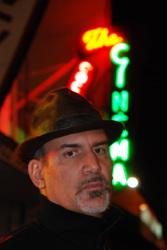
Do you schedule specific times to brainstorm, or does it come when it comes?
Interesting. For example, the TV stuff or the film stuff has its own schedule, and they pay a tremendous amount of money so that gets scheduled. And then I think to myself, well, you know, maybe it’s time to make another record or whatever. I hadn’t put out a record in a really long time. There was a point, I think it was 1999-2005 and then my sister died in a car accident, my beloved younger sister.
Wow.
And in some way, I don’t know if it’s totally true, but I think it’s true, it kinda motivated me to start putting out things, trying to leave some mark. And I’ve put out a bunch of records since then. I have a whole other record, I’ll be doing a live record. Then we put out these things called “Himmelvaults,” I don’t know if you’ve ever heard of those…
Yep.
All these old songs that were never released, we’re up to volume 7 now. And some of that stuff I’m just gonna give away, you know, come to the site and download the whole album and the art from the website. And I think I’m gonna do the same thing with this new live record.
So that’s what’s next for you, a live record?
The live record is pretty done, you can’t get as involved in that. It’s a good show, what it was it sounded really good, and it was just a solo acoustic show and it’s really funny. It has a lot of improv and storytelling on it, which was a big part of the shows, and I don’t believe it’s ever been reflected on any kind of recording. I’m excited about that in a way.
Well, Lance Bellevue is my hero.
Lance Bellevue, he’s been in and out of rehab, but he’s quite a guy.
[laughter] He’s quite a guy.
I know him, I feel I know the guy. Lance Bellevue.
Well, you’ve had the same band for your whole adult life, so are they in on your creative process, or do you just lay out the groundwork and they riff in, or?
It’s an interesting evolution, because we were together in that band, for so long, and we grew up together, and there was a spirit of [working] together. I was always sort of the leader. But now it’s purely fascism, you know what I mean, and we don’t really collaborate that much because we’re doing different things. Some people live in different areas, and one guy works in finance in the day. Another guy is doing commercials, so it’s not like we can even get together in the prime of the day.
And at night, some of us are family men, so it’s not like we can rock all night, it’s not really that way. We get together, it’s kind of almost nostalgic in a way, which is not a good thing for creativity. Um, I mean, on my new record, I didn’t have any of those guys play on it. I know they’re pretty bummed about that. One, it is difficult to get them together in the day, cause they’re doing other things, and professional musicians, if that’s all they do, you pay them and they come. And for me, it’s a bit more exciting to play with new people.
I never played with new musicians until 1999. It had been like 20 years playing with these guys. They always play with different musicians. I felt like I was the only guy that wasn’t having the affair.
I really admire that your faith is such a strong central part of your life, and that you passed on some opportunities along the way because it went against your faith. To me, that’s pretty incredible, and you’ve always said that you have no regrets about that, but was that still kind of a tough road back then?
Well, I know you want me to be really honest with you. When you’re doing these interviews you’re doing two things… I don’t do these interviews right, I know I don’t. ‘Cause I’m not really trying to sell all my crap while I’m talking to you, you know? I’m trying to sell the albums, because otherwise why the hell would you do an interview? But I like the process of psychology, in a way.
So to give the real answer, it’s not like I don’t have regrets, or let’s put it another way. I made decisions to prioritize my family and my Jewish faith observance of these laws. I have no regrets at having made the decision at all, yet the decision was not pain-free. That’s the important thing. It’s not without pain to have given up something and let’s be honest, if there weren’t pain, there would be no kudos for having done so. It would not be admirable. The minute I don’t have any pain about, you know, not being a bigger, more well-known artist, that’s a total lie. It’s something that really grieves me to one extent or another every day. But by no means is it like “wow, I made the wrong decision.” The two things, even though they’re paradoxical, they function fairly well together. They struggle with one another in a beautiful way every day.
You know, you’ve always been so true to yourself, and you’ve never really wavered.
I don’t know if that’s true either, I’m a big bullshit artist, too, you know what I mean? It’s just that when it came down to it, I was on the road and I realized that being out on the road as long as it took it to really explode and the things that you had to do, it would involve crushing my marriage and my newborn kid and it just didn’t make sense to sit up there and play songs like in Permanent Things, and be some famous asshole that just got a divorce. It just didn’t seem like anything that I wanted to be involved with.
See, to me that’s admirable.
Maybe it is, and you know, I don’t know, I just think it’s a certain understanding of the world. There is really no choice. There wasn’t really at the end of the day any kind of choice.
And I think sometimes, I really love my father and so admired him. If you hate your father, and you hate your parents, it’s very possible to become more famous. I’ve thought about this. You have no responsibility to honor their memory. You can do or say anything. There’s that certain drive. Where I feel somehow limited, in a good way, that I wouldn’t ever want to bring dishonor upon my father, upon my mother.
See, I think having a strong family and support like that has to help.
Certainly it helps in being a happy person or coping with life. Because there’s so many different ways to talk, talking about these interviews. One is, are we going to talk about the music business and then compartmentalize it away from life? You know what I mean?
Right.
I feel like a failure a bit in the music business, I feel like it’s not something I’ve been successful in. I’ve been successful, I think, with music, but the music business, the idea of having meteoric fame, you know, it’s troubling to me.
Wow. I don’t know, I don’t see why that would be troubling. You have so much respect.
Well, that’s the thing. You ask what do your fans think? I don’t know. I have no idea. Most days, I’m just sitting in my studio and picking up my kids from school, walking my dog, writing some songs, making some cues for a TV show, so I don’t really know. It’s like in a big vacuum, remember, I read that thing about Daniel Pearl. It was amazing to me. It was like, wow, you have some effect. Somebody that you respect can respect you back.
I hope I’m not bumming you out or anything.
No, absolutely not.
And I’m a very happy person. And when you ask me about these things, I’m just trying to be honest with you. Like, he’s this cool guy, and he’s got it all together. I don’t have it together, you know. It’s still a struggle and I guess that’s kinda why I keep making these records. Somebody wrote a review of my record that sorta bummed me out or pissed me off the other day, or made me sad and angry. You know, he said, “well, you know, Peter’s bitter perspective is the reason why more young people are not embracing his music.” Probably true, that may be true. It seems like my earlier songs were really idealistic and maybe easier for some young person to embrace, but in fact, as a person, I’m far more idealistic than I ever was, it’s just that my idealism has been tested. It’s been honed by reality, where the other things [were] spouting and platitudes.
Are there any artists out there that you feel a kinship with? On their level, in the same ball park?
Geez, I don’t really know. I look more to other types of artists and other people rather than, say, songwriters. There’s a lot of songwriters that I really like, and I don’t I feel anybody’s mining the same type of territory that I am, for better or worse. I mean, you know. I always felt a kinship with jazz musicians. That’s not to say that I’m brilliant at all, but I feel they’re brilliant, and playing these small clubs, and they’re doing things, jazz improvisation, which is literally, it’s a work of genius when done well. Far more brilliant and beautiful than many musical forms, and they’re undervalued in a way. And the fact that they’re free and improvisational, and they seem to be rebellious… I feel a kinship with that, and it has nothing to do with it musically. But I have a lot of friends that are real jazz musicians and they come to my shows and say, “yeah, you know, you really have the spirit of a jazzer.” Which I take as the highest compliment.
I can see that. When you guys are up there, and you pull a kid from the stage and you start improvising a song about him… I can see that.
It’s like you’re creating a moment. You’re not rehearsing something that you’ve done a bunch of times, or a reenactment. There’s something about spontaneous creation, it’s very rare. Somebody told me a story, I don’t know if it’s apocryphal or not, but it was very moving to me, about Branford Marsalis, you know who he is?
Yeah.
He was in his forties or something, he’d been a jazz musician forever, and they said, “how many times on stage have you been really unearthing the beauty and really coming up with spontaneous creation.” I don’t know what people think he would say. I had an idea of what I wanted him to say, and he said it. He goes, “three times.” Only three times, he’d been working at it forever, and it’s three times more than anybody else has ever had. How many times in a marriage have you had these exalted moments of utter unity? If you have that three times in 10-20 years, you’re doing really well. In religious faith, in prayer, how many times a day, I pray three times a day. What’s the percentage of real connection with divinity that I have? If I had one clear second out of a day, it would be huge. And yet, I keep doing it and doing it and doing it.
What is your earliest musical memory?
I used to listen to my my oldest sister’s Beatles records, those 45s with the orange and yellow logo that would go around, and literally almost cry or laugh. It was so intense. And then I had a cousin who was in this band called “The Purple Sunset,” and they were in 8th grade and they played at this guy’s bar mitzvah. And they let me sit in and play the tambourine, I was probably in 5th grade or something. I could’ve been flying a rocket ship, or playing Major League baseball, it could’ve been anything, it was such an unbelievable experience. And then I heard this other band, who was in 9th grade, they were called “Odella,” and when they played together – the keyboard player later went on to play with Prince, his name is Matt Fink – “Doctor!, Doctor!” It was so awesome that I couldn’t stop laughing. Ever had that irrepressible laughter?
Yes.
I haven’t had it in a long time. You are so moved you’re beyond speech. These guys, they probably sucked, but I thought it so compelling. No wonder I went into music.
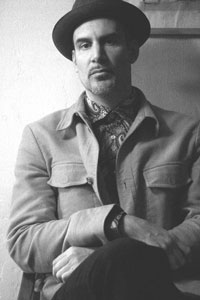
When a piece of music or a musical moment hits you in such an intense way, it sets your path. I think that’s it.
I thought, this is really for me. I wasn’t super-talented at sports or anything. I could see doin’ something with this.
Is that all you thought of doing ever since?
The music is just… it’s kind of tangential, the music. It’s about creating a connection with people. And I can draw and uh, do other things, too. Try any of those things I put up there, it just so happens I’ve done the most with music. Making those pictures out of clouds, you know?
[laughter] I just think – I’m not laughing at you, really I’m not –
I don’t mind.
Who are you listening to right now? Do you have someone that is really gettin’ ya right now?
Well, um. [sighs] What a question. To come up so bereft. My son [Isaac Himmelman] has been writing a lot of songs, and we made a record together which isn’t finished. I’ve been listening to that a lot. He’s got quite a gift. And then he plies me with these records of compilations of people that he really likes, different bands. I like the Yeah Yeah Yeahs, you know that band?
Yeah.
I like that woman’s voice or something, it just sounds impossibly sexy to me, I don’t know why. It’s like that jangly thing, there’s this Iron & Wine guy that I always like. Uh, you’ll have to ask me a question later. I feel like I have Alzheimer’s, none of the names are coming to me.
Right now I’m not in such a music-listening phase. You know, I like to read a lot, I like to read about politics. I think I like reading more than I like listening to music right now.
Ugh, you’re breakin’ my heart.
It’s not like I don’t like music.
No, I go through spurts, I think everybody does. You put the music away for a little while and then when you bring it back out, it’s clean, it’s fresh, it has a whole new meaning.
What happens is that if you’re in it, you become so subjective and that subjectivity is helpful on a professional level, but it has a soul-crushing aspect to it. Because the guy starts to sing, and you go, oh yeah, yeah, I know how he’s doing that chord progression, here it’s just gonna go here, and he’s gonna say this, yeah, that was really cool production, what a great snare sound. You start using parts of your brain that are not good to use when you’re listening to music, you know what I mean?
Right.
It’s a very, very rare thing that can come in and kill you, bring you away. That’s what I’m saying about the subjectivity. It’s hard to become an innocent listener again, maybe become naïve. I used to just be so destroyed and moved by so many different things. Sometimes I’ll go to a museum and try to look at paintings in a different way. I’m not bemoaning the way that music is delivered or anything, but it’s so ubiquitous, it’s like water flowing out of a tap. It’s hard to maintain that subjectivity, or that objectivity. Even my own stuff, sometimes it’s like sickening, blonk!, I play this chord a million times, where, what am I gonna say that is totally different?
But somehow you always do.
It’s not like the music is new when you create some new music. It’s that you had some experience, you know, you saw a child being born or you went to a kid’s hospital and played a song for some kid that has cancer while his parents are, you know, trying to smile through their tears or something. And you walk away completely changed. You are now no longer so subjective about life, either. You’ve regained some innocence and objectivity. And in that state, if you pick up a guitar, it’s very likely that you’re gonna come up with something, something rich in one way or another.
So what’s next for you?
I don’t know. Next for me is, I think I’m going to try to write a song about Daniel Pearl. And I hate writing songs based on an idea. I have this idea for a song, it’s the worst way to approach writing or doing anything. But I think that’s something I might wanna do. Um, and I’m probably gonna make another record. And I’m probably just gonna give it away. This whole sales, CD thing, it’s just done. It’s done for me, it’s not done for John Mayer or somebody, but I think it’s done for me. You know, what’s the point?
• •
After the interview with Peter, I was reading his website when I saw a link to the Daniel Pearl Foundation and something that Peter had done there. I knew that there was a connection between them because of the content of the interview but after following the link on Peter’s site, I was a little taken aback. There were lyrics to a song that Peter had written about Danny. It was a song full of admiration and respect – right above the byline you can click to hear Peter perform the song and I found it touching and melodic. My curiousity piqued, I began reading about the Daniel Pearl World Music Days and what they’ve been doing to promote “Harmony for Humanity” . During the month of October, they hold concerts all over the world, every genre, every scale – in tribute to Danny and to unite people with the power of music.
Daniel Pearl Foundation: http://www.danielpearlmusicdays.org ◼

